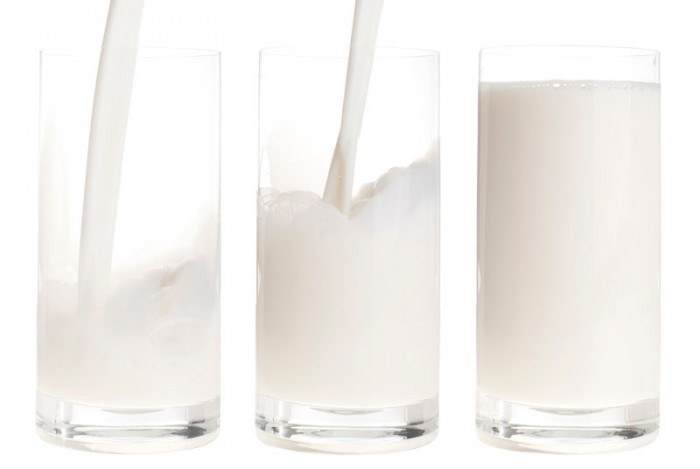It is estimated that between 1 and 8 percent of babies and small children develop cow’s milk allergy. The consequences can be serious. The good news for parents is that the majority of those diagnosed outgrow the condition during childhood and true milk allergy, as opposed to dairy intolerance, is pretty rare in adults.

Milk allergy is caused by the immune system reacting to milk as if it is a dangerous invader. It is unrelated to lactose intolerance, a condition in which individuals cannot digest the sugar in milk because their bodies fail to produce enough of the enzyme lactase. Cow’s milk allergy often remains undiagnosed.
Milk Allergy Symptoms
Symptoms often appear during the first few months of life. These include:
- An upset stomach
- Loose and/or bloody stools (blood not always obvious)
- Vomiting
- Failure to thrive
- Hives
- In extreme cases, anaphylaxis, a rare, life-threatening condition which requires immediate medical attention.
Diagnosis of Milk Allergy
Not all of the symptoms listed above may be present. If you think that you or your child may be allergic to cow’s milk, make an appointment with your doctor or allergist who may make a referral to an allergy clinician for blood tests and further investigation.
Under close medical supervision, an oral food challenge may be done, where the patient is given small amounts of milk or milk products to observe the reaction. A skin-prick test may also be done and the stool may be tested for the presence of blood. Blood tests may pick up specific allergy to particular types of milk protein, and give an idea of the risk of serious reactions.
Management of Milk Allergy
Avoiding milk
Avoidance of milk and milk products is the only way to manage the allergy.
It is crucial that any change in diet of a baby or child is supervised by a health professional to ensure that the child continues to receive nutrients essential for growth and general health. Switching to milk from goats or sheep, which may be helpful for adults who are dairy intolerant, will not ease symptoms of true milk allergy as studies have shown that the vast majority of those with cow’s milk allergy are also allergic to the milk of sheep or goats.
Infants under 12 months
Infants under 12 months must not be given soya milk of the type generally available in health-food shops or supermarkets as this will not contain the nutrients needed for normal development. During the first 12 months of life only breast or formula milk are suitable. The medical practitioner supervising the management of the allergy will be able to advise further on suitable soya milk formula. If a breast-fed baby is found to be allergic to milk, the mother may be advised to avoid milk and milk products.
Foods containing cow’s milk
Obvious foods to be avoided include milk, cheese, butter, yoghurt, ice-creams and custards.
Less obvious ingredients to look out for include dairy product solids, galactose, ghee, hydrolysates, lactalbumin, lactose, lactate solids, rennet, whey and casein.
Both the US and the EU have laws governing food labelling to help identify products which contain milk or milk products. It is important to read labels carefully to avoid milk products.
Many processed foods, such as cakes, soups, pizzas and sauces, contain milk. Particular care needs to be taken when eating out.